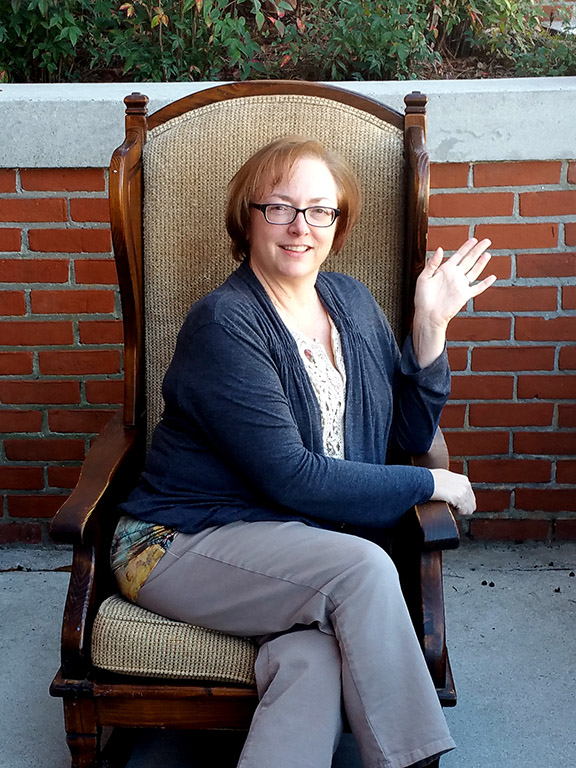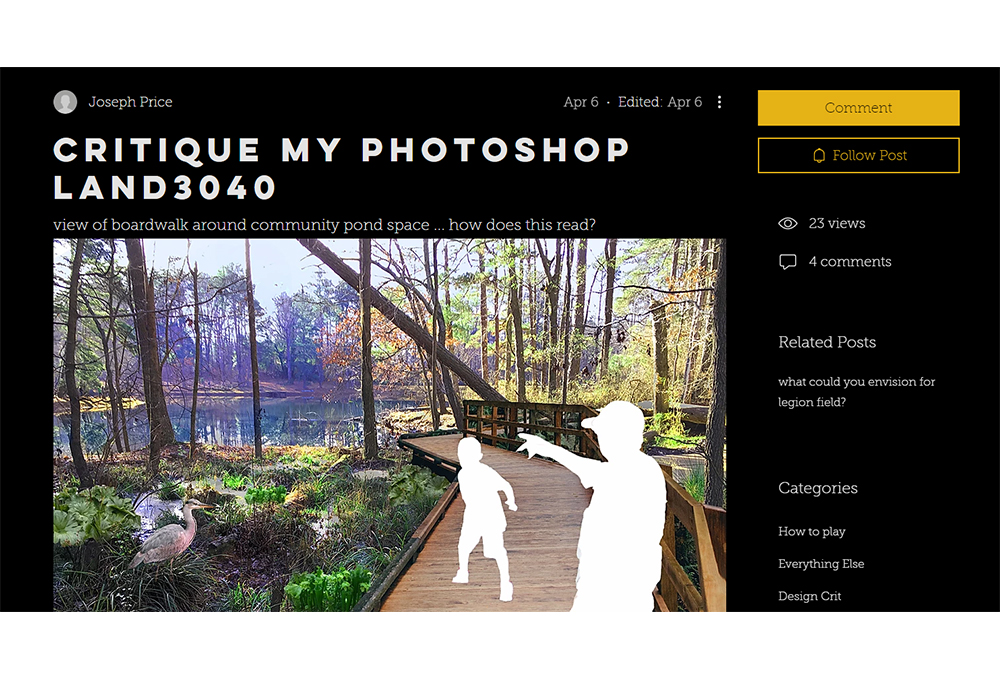Leslie Palacios Becomes the CED's First PhD Graduate
 On Thursday, July 23, 2020, Leslie Palacios successfully defended her doctoral dissertation
and subsequently became the first student to receive a PhD from the College of Environment
and Design. In her research she applied a Grounded Theory approach in Exploring the
Relationship Between Studio-Based Learning and Active Learning in the Landscape Architecture
Design Studio. Equipped with her new doctoral title, she plans on teaching Landscape
Architecture at the university level.
On Thursday, July 23, 2020, Leslie Palacios successfully defended her doctoral dissertation
and subsequently became the first student to receive a PhD from the College of Environment
and Design. In her research she applied a Grounded Theory approach in Exploring the
Relationship Between Studio-Based Learning and Active Learning in the Landscape Architecture
Design Studio. Equipped with her new doctoral title, she plans on teaching Landscape
Architecture at the university level.
Leslie obtained her PhD under the mentorship of Dan Nadenicek, current professor and former Dean of the CED. Nadenicek began the PhD program in 2010 and is currently the PhD Program Coordinator.
According to Palacios, “being the first PhD candidate to graduate from the CED is exciting.” Because the CED’s PhD program is so young, its students and professors have room to develop the curriculum as the program matures. The relatively small program provides many opportunities for the students to get to know the CED faculty on a much deeper level than in other programs. Other PhD candidates are studying a range of topics such as landscape history, transportation, historic preservation, social issues on the Atlanta BeltLine, Chinese gardens, and overtourism.
See the full list of the CED’s PhD candidates here.
A study of the history and function of the studio system could not be more timely. In recent months, online instruction has forced design students and teachers alike into their homes and away from the studio spaces where so much of their work takes place. Placing a critical eye on the pedagogy of the studio system allows Palacios, as well as the rest of the students and professors who make up higher education in design, to consider what exactly makes the studio system unique from lecture-based curricula.
Palacios considers the shift to remote work an “opportunity to advance the [CED’s PhD program] electronically and technologically.” The studio system has changed significantly over its 100-year history. In the wake of widespread online learning, the studio system underwent an accelerated reimagining at the hands of the CED and thousands of other design schools. While the studio system is always changing, recent trends to online learning has forced students and professors to quickly adapt in new ways.
 A screenshot from the LETTUS Virtual Crit Lab, which allows for design students to
submit projects and receive feedback despite not being able to meet in person. Visit the crit space by clicking here.
A screenshot from the LETTUS Virtual Crit Lab, which allows for design students to
submit projects and receive feedback despite not being able to meet in person. Visit the crit space by clicking here.
One way that studio spaces, as Palacios puts it, are working to “maintain the magic of the studio” is by setting up virtual spaces to solicit and offer criticism of design. One such space is the Virtual Crit Space set up by the student collective LETTUS. LETTUS is helmed by another of the CED’s PhD candidates, Lynn Abdouni, who is on track to graduate in the Spring of 2021.
The CED is proud of the work that Palacios, Nadenicek, and all the other CED faculty, staff, and students involved with the PhD Program are doing. We hope that the rest of the CED community will join our College in the celebration of such a significant milestone.
